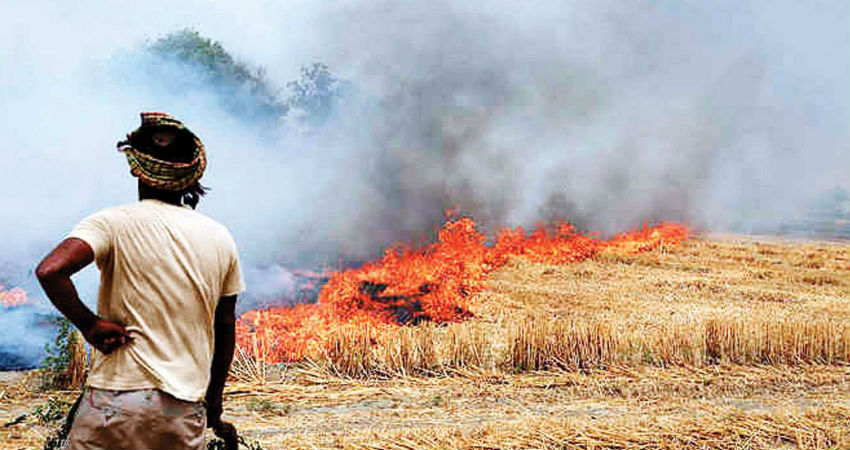Fungi tablets are the solution to the pollution in the northern states of India. This low-cost method for getting rid of crop waste will decrease the burning of crops that causes severe air pollution and covers Delhi in smog.
Authorities in New Delhi launched an anti-pollution campaign in an attempt to curb air pollution levels ahead of winters. The step is taken in order to protect Delhi and the neighbouring states of Haryana, Punjab, UP, and Rajasthan, which get covered by thick pollution due to stubble burning every year. A new technology developed by Pusa Agriculture Institute will be used to decompose straw in the fields.
With the arrival of paddy stubble-burning season, the satellite remote sensing data from the Indian Agriculture Research Institute (IARI) has released a data that shows a five-fold increase in the number of farm fires in Punjab, Haryana, and Uttar Pradesh during the first six days of October compared to the corresponding dates in 2019.
A new method for decomposing crop stubble is now found by the scientists and the answer is fungi tablets. A report by The IE citing scientists at IARI said that Pusa Decomposer will help with crop residual. The burning of paddy stubble left in the fields after harvest has been a cause of concern for the past several years as it leads to deadly pollution in the northern states of India.
Chief Minister of Delhi, Arvind Kejriwal said, “The government will start an anti-dust campaign, reduce smoke caused by agricultural burning and introduce a mobile application that will allow citizens to lodge photo-linked complaints against polluters.” The Chief Minister also congratulated the IARI scientists for coming up with a low-cost, effective technology that will deal with crop stubble burning as it is a major source of pollution every year during winters.
The IARI has developed PUSA Decomposer, which is a set of four tablets made by extracting fungi strains that help the paddy straw to decompose at a much faster rate than usual, giving farmers the option to shred the straw, spray a solution containing the fungal strains, and mix it with the soil for decomposition.
What is ‘Pusa Decomposer’?
Pusa Decomposer is essentially a fungi-based liquid solution (and capsules also) that can soften hard stubble to the extent that it can be easily mixed with soil in the field to act as compost. The use of this will rule out the need to burn the stubble, and also help in retaining the essential microbes and nutrients in the soil that are otherwise damaged when the residue is burned.
This is an eco-friendly useful technology that will work in accordance with the Government of India’s “Swatch Bharat Mission.” The decomposer is completely chemical-free and non-poisonous. The decomposer is a microbial consortium of eight types of micro-organisms and therefore cannot be poisonous in any way possible.
Usually, when farmers burn the crop stubble, it takes at least 45 days to decompose which may delay farmer’s preparation for the wheat crop. However, with the use of Pusa Decomposer, the decomposition time will reduce to 25 days.
Pusa Decomposer has been developed after nearly five years of research and provides a cheap solution to the problem of crop burning as four of its capsules, costing Rs 5 each, are enough to make 25 litres of solution that can be used for rapid decomposition of crop residue over a hectare of field.
How will this technology be used?
Union Environment Minister, Prakash Javadekar has said that the decomposer will be used on a trial basis this year in Punjab, Haryana, Uttar Pradesh, and Delhi. It has been reported that the technology would be used over 100 hectares of land in Punjab, and Haryana, 800 hectares in Delhi and 10,000 hectares in Uttar Pradesh.
IARI has been conducting experiments for a year-and-a-half on the decomposer. The technology was licensed for commercial use to four companies in 2019, and to two other companies in 2020. Delhi has started preparing the solution with help from IARI and would begin spraying it over fields from October 11 onwards.

